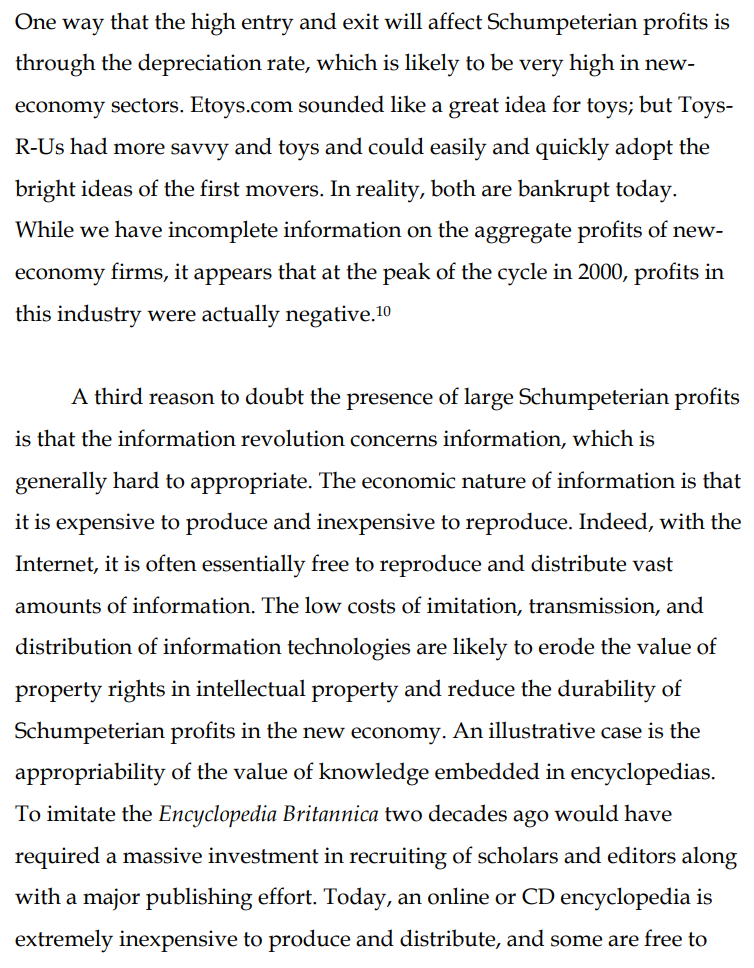- I sometimes hear prospective employees feel like they are "overqualified" for EA positions by trying to compare relevant metrics. E.g. "you don't need a product manager if you have less than 5,000 page views per day." I think this is misunderstanding a key difference between altruistic and profit-motivated organizations.
- Many companies only capture a small fraction of the value they produce. Nordhaus 2004 estimates that companies capture about 2% of the value they create through innovation.
- This means that companies underinvest their products (relative to the social optimum), because they can't capture the value from improved products.
- Therefore, altruistic organizations should invest substantially more into their products than comparable for-profit organizations do.
- As a concrete example: Reddit has approximately one employee per 600,000 users, whereas this Forum has approximately one employee per 13,000.[1] Interestingly, this is almost exactly the 50x multiple Nordhaus would predict.[2]
- I would further argue that it's multiple orders of magnitude more valuable to attract a user to the EA Forum than to Reddit, so the 50x multiple should be even higher, though obviously I have a bias.
- I think this adjustment for externalities is still not actually the right way to make career decisions – you should think more about the impact you have, not how some arbitrary metric compares – but if you are going to consider arbitrary metrics, I think you should consider adjusting by a large amount.
Some of these ideas are also referenced in the tech entrepreneurship 80 K article.
CEA Online, the team supporting this forum, has current openings for for UI, UX, or Graphic Designer, Product Manager, Full-Stack Engineer.
- ^
Reddit data taken from https://backlinko.com/reddit-users. There are four people who work full-time on the Forum (JP, Sarah, Clifford, Lizka); without evidence I will claim that the portion of operational staff who support them add up to a 5th FTE. Forum MAU count from Google analytics, trailing 28 days ending May 17, 2022.
- ^
Of course, this is oversimplified. For example, presumably there are diminishing returns to labor, so naïvely multiplying employees by 50 is too simplistic.





My guess is that a reply to my comment above would be:
"Ok, fine, but this rationalizes more effective, better managed, and larger teams for higher impact, since we're earlier on the "curve of returns to labor" than it appears and can accept more labor and capital.
Furthermore, I can, and have been, provisioning this management and setting these conditions, so the argument applies and strong EAs should join my awesome team.
Also, hasn't it been a few months since your last forum ban?"
This is true. One reply to this reply, is that this implies EA organizations should be systemically larger than other organizations (due to the OP's reasoning of internalizing externalities and other conditions, see footnote 1 in above comment).
This is interesting, but doesn't immediately doesn't match our intuition or the general size of EA orgs, which are small (but maybe this is masked by the limited supply of high quality EA talent).
If Ben West's logic in the OP holds, this might have other implications that are important or interesting (again this is relying on EAs differentially supporting externalities).